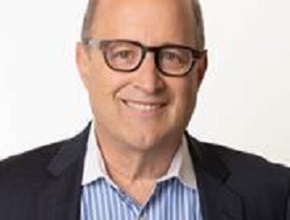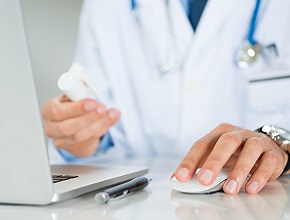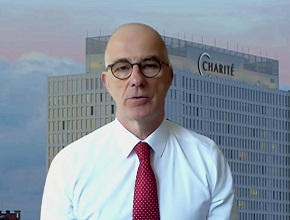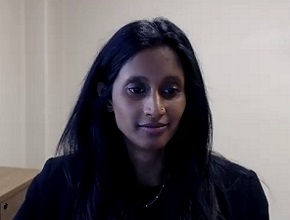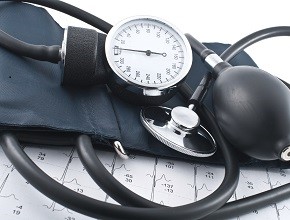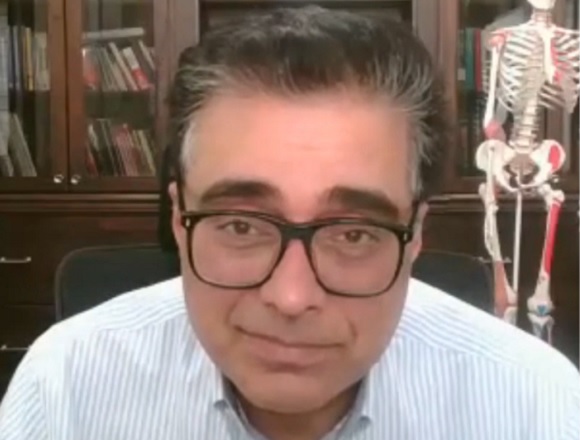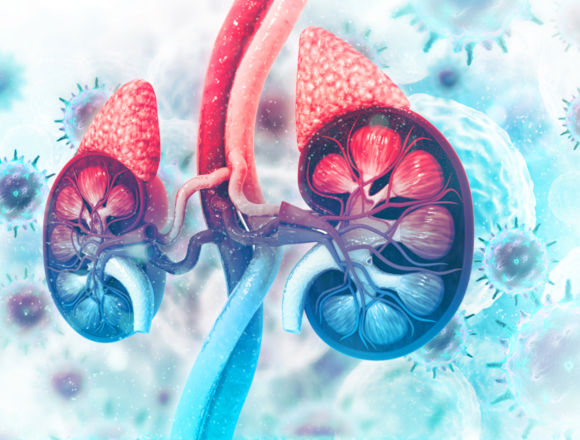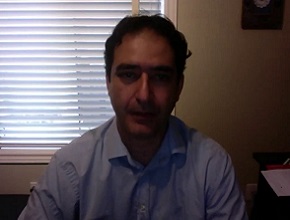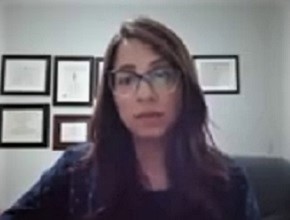Dr Mitchell Levine, professor in McMaster University’s Department of Health Research Methods, Evidence and Impact (HEI), and Dr Roman Jaeschke discuss the effects of taking antihypertensive agents at different times of the day in the latest McMaster Perspective episode.
Roman Jaeschke, MD, MSc: Good afternoon. Welcome to another edition of McMaster Perspective. I would like to introduce Professor Mitchell Levine, who will talk to us about clinical situations, [with] which we all deal frequently. And I think he has some very fascinating things to say. Professor Levine, would you mind introducing yourself?
Mitchell Levine, MD, MSc: Sure. Thank you, Roman. I am Mitch Levine and I am a clinical pharmacologist and a clinical epidemiologist, so I have been very interested in how medications are used and the consequences of medications, as they affect patients in the real world. That is kind of my background and my interest. And I came across this article that intrigued me. Actually the whole area intrigued me, which was the effects of taking medication at a different time and how it might give you different results.
Roman Jaeschke: You mean different time of the day.
Mitchell Levine: Yes, different time of the day.
Roman Jaeschke: OK, so why don’t you jump right in and tell us what the topic is? What is the clinical situation?
Mitchell Levine: The topic is about taking your antihypertensive medication—whether you should take it in the morning or just before bedtime. There [has been] evolving literature over the past decade that would suggest that maybe you should be taking it more at night, really at bedtime, rather than taking it in the morning. My interest in this… [I] kind of stumbled across it when I saw a grant application for this about 3 or 4 years ago, where somebody was planning to do a study to evaluate the clinical effects of [antihypertensive agents depending on] whether [patients] took their antihypertensive medications in the morning or at night. And they [researchers] have provided a fair bit of literature that had preceded their study application, which really suggested that you get better treatment of [high] blood pressure and lower [rates of] cardiovascular events when antihypertensives are taken at night. I have been following this, and then I came across an article that was published ~2.5 years ago—not only the article but a lot of the criticism of the article. It became very controversial. So, I became very interested in knowing what we should believe in and what we should do based upon this controversial article.
Roman Jaeschke: Give us a little bit more details.
Mitchell Levine: OK. In that study, the HYGIA study, which had 20,000 patients, you could see that the people who took their medications before bedtime had a reduction in cardiovascular events by 30% to 50%. It was quite dramatic, compared with the patients who were taking all their antihypertensives in the morning. And in these patients... They could be taking one medication or they could be taking multiple medications, but all their medications were to be taken at the same time, randomly allocated to either morning time or at bedtime. The effects were quite dramatic.
Now, there was a lot of criticism about this article, because the effect seemed “too good to be true.” So, when people think something is too good to be true, they get very skeptical and say “Well, maybe that is exactly it, it should not be believed.” And the criticisms that I started reading were not terribly well founded. They were so skeptical about the results that they looked at any possibility of criticizing the article so that they did not have to believe it and did not have to follow it. The criticisms were not really very valid in my view. Over time I decided that... In fact, I am a hypertensive patient. I take my medications. I started taking mine at night.
The question would be [whether] I should be telling patients to be taking them [antihypertensive medications] at night as well. One has to always look at the risks and the benefits. According to the benefits, they are quite dramatic. You get a huge reduction in cardiovascular endpoints, whether it be myocardial infarction (MI), cardiovascular death, stroke. These are all being reduced dramatically by nighttime adherence to medication compared with early morning adherence.
So, the benefits are dramatic. Now, what we have to think of is what is the risk. Well, in fact, there does not seem to be much risk. The concerns that maybe blood pressure would drop too much at night and leave people with problems of syncope, going to the washroom in the night, or getting up at night did not pan out there. In the 20,000 patients, there was no report of any serious adverse events related to nighttime falls, so [it] just does not seem to be occurring. What are the other possibilities? Well, could nighttime medications make other diseases worse? I guess, [potentially], if you had a drug that would lead to a lot of relaxation of the lower esophageal sphincter, then maybe it would give you worse gastroesophageal reflux disease, but that did not seem to pan out either as being a big problem.
What are the other concerns with this? If you are taking a diuretic, are you going to have to go to the washroom more [often] during the night? That is possible if the diuretic dose is substantially bigger than what we usually use. Very low–dose hydrochlorothiazide, for example, does not increase a diuretic effect, so it really should not lead to more nighttime trips to the washroom. In the end, there really was not a lot of negative. There certainly was a lot of potential positive. And it just seemed... Simpler to say, the risk-benefit ratio is certainly in favor of using it [antihypertensive medication] at nighttime and that is the way I have tended to proceed.
Roman Jaeschke: Well, I have spoken to a few people who listened to your presentation, which we have on our site as well [the lecture is available here], and I know at least 3, call it, prominent physicians who switched from morning medications to evening medications for hypertension. What I plan to do is to send those papers to people who do clinical practice guidelines in hypertension, because one surprising thing among criticism was that people who criticized this are very prominent in the practice guidelines world. And one of their criticism was “We never heard about this study,” while it was going for a number of years. So, let’s see whether the awareness of it will influence the pattern of practice. I believe in our hospital we give antihypertensive medications to our patients in the morning. Is that the case?
Mitchell Levine: That would be correct. Generally speaking, that would be correct. Yes.
Roman Jaeschke: So, the current practice is [that] most of people are taking antihypertensives in the morning. And what you presented seems to be “too good to be true” in terms of how effective it would be to give them in the evening, at bedtime in fact.
Mitchell Levine: I think the reason [why] guideline creators are reluctant is not... If you look at the risk-benefit ratio... Let’s say there is not something true about this. The risk-benefit ratio does not really have a negative consequence for the patient if it cannot deliver on the benefit for some reason. But I think they are afraid of making a guideline that will make them look foolish if it turned out this was not true. So, it is more about their personal vulnerability rather than their patients’ vulnerability why it is not being included in guidelines at present.
Roman Jaeschke: Well, let’s find out a little bit more about it. I am inviting everybody who is interested in this topic and, knowing how many of us treat people with hypertension or have hypertension, I suspect that more than half of the people listening to it may be very interested in the subject of when to take antihypertensive medications—in the morning or late in the evening? Mitch, thank you very much for this fascinating information.
Mitchell Levine: You are very welcome. Thank you.
Roman Jaeschke: Goodbye.
 English
English
 Español
Español
 українська
українська

